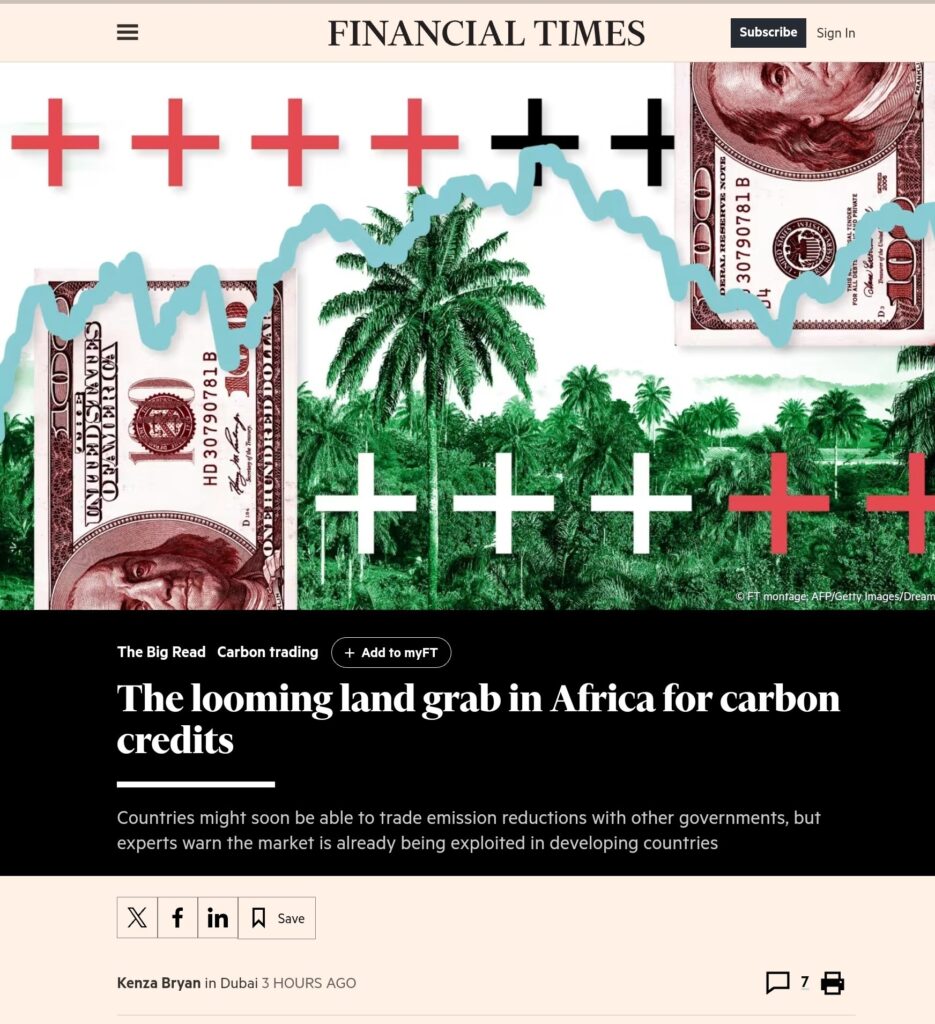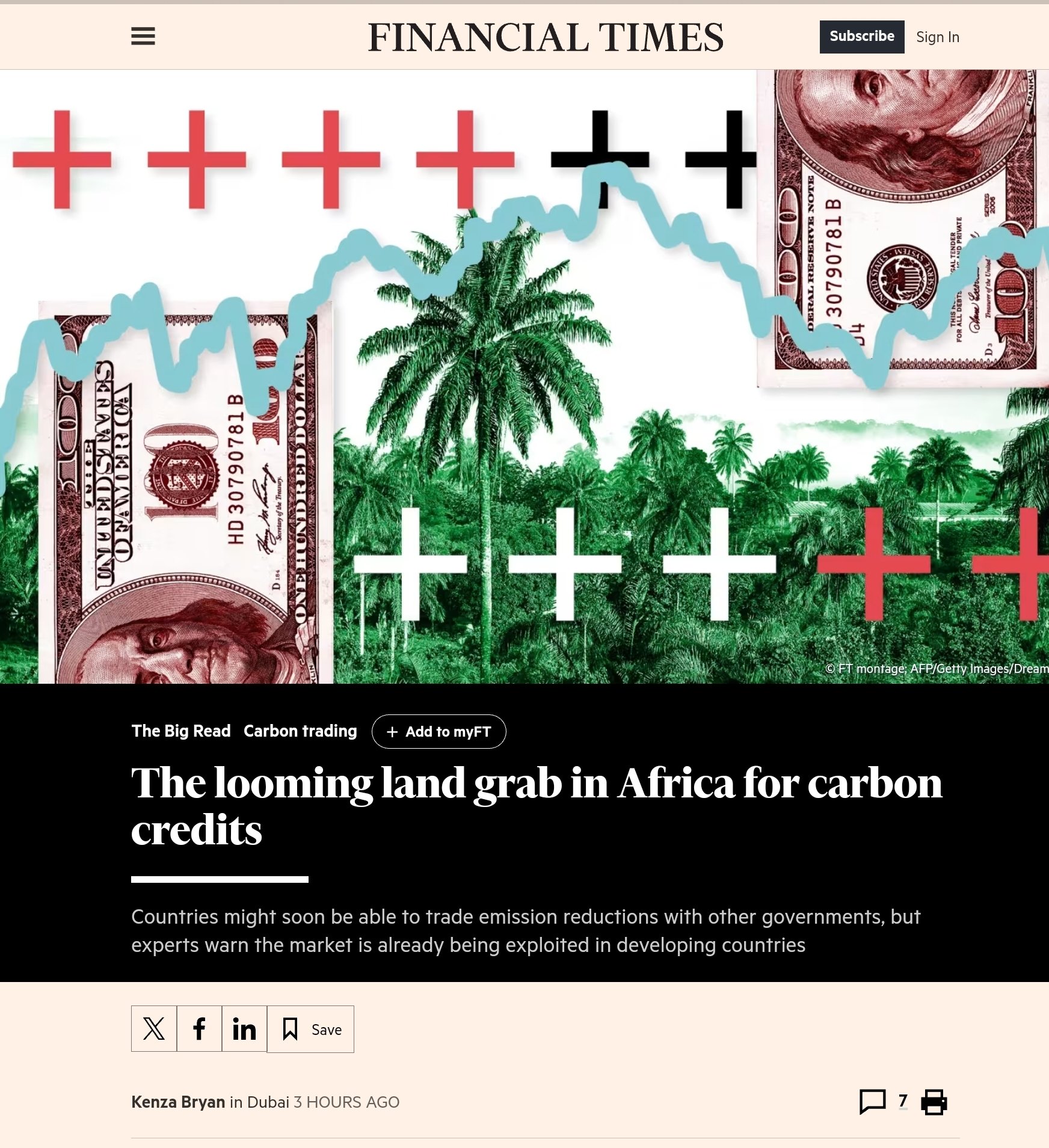Financial Times: The looming land grab in Africa for carbon credits – Western carbon offset companies look to lock up "a tenth of Liberia’s land mass, a fifth of Zimbabwe’s, and swaths of Kenya, Zambia and Tanzania" – “The [methods] of exploitation might be new but the… pic.twitter.com/lA9ckG4XGE
— Marc Morano (@ClimateDepot) December 6, 2023
By Kenza Bryan in Dubai
One day in late October, leaders from more than a dozen towns across Liberia’s Gbi-Doru rainforest crammed into a whitewashed, tin-roofed church.
They had gathered to hear for the first time about a deal signed by their national government proposing to give Blue Carbon, a private investment vehicle based thousands of miles away in Dubai, exclusive rights to develop carbon credits on land they claim as theirs.
“None of them were aware of the Blue Carbon deal,” says Andrew Zeleman, who helps lead Liberia’s unions of foresters.
Only two of the leaders were even remotely familiar with the concept of a carbon credit, he adds — the tradeable instrument that can be obtained when a tonne of carbon is removed from the atmosphere or avoided, for example because a forest has been planted, or protected from deforestation.
Blue Carbon, a private company whose founder and chair Sheikh Ahmed Dalmook al-Maktoum is a member of Dubai’s royal family, is in discussions to acquire management rights to millions of hectares of land in Africa. The scale is enormous: the negotiations involve potential deals for about a tenth of Liberia’s land mass, a fifth of Zimbabwe’s, and swaths of Kenya, Zambia and Tanzania.
Blue Carbon’s intention is to sell the emission reductions linked to forest conservation in these regions as carbon credits, under an unfinished international accounting framework for carbon markets being designed by the UN. In a market that is being designed for and by governments, Blue Carbon is among the most active private brokers.
Climate negotiators meeting in the United Arab Emirates for the COP28 summit this week have been looking to finalise this framework, with the aim of sounding the starting gun on a new market in carbon credits which would allow countries to shrink their own carbon footprints by buying emission reductions from others.
The trade is supposed to be simple. The 195 countries that have signed the 2015 Paris climate agreement committed to setting targets for reducing their carbon emissions by 2030. If a country exceeds these or future targets — for instance through switching to renewables, or reforesting territory that increases carbon stocks — it can sell those additional emission reductions to another country.
The UAE, alongside other governments such as Switzerland and South Korea, has been betting that these international carbon markets could be a central pillar in the climate solutions offered to world leaders at COP28.
The existing international market for carbon credits is worth about $2bn, with roughly four in 10 credits sold based on nature restoration projects. Private buyers, from companies to individuals, can buy offsets for their own emissions to meet their own reduction goals. Brokers similar to Blue Carbon obtain rights to buy and sell credits, taking a cut of their value.
https://twitter.com/JusperMachogu/status/1729866152183300115





